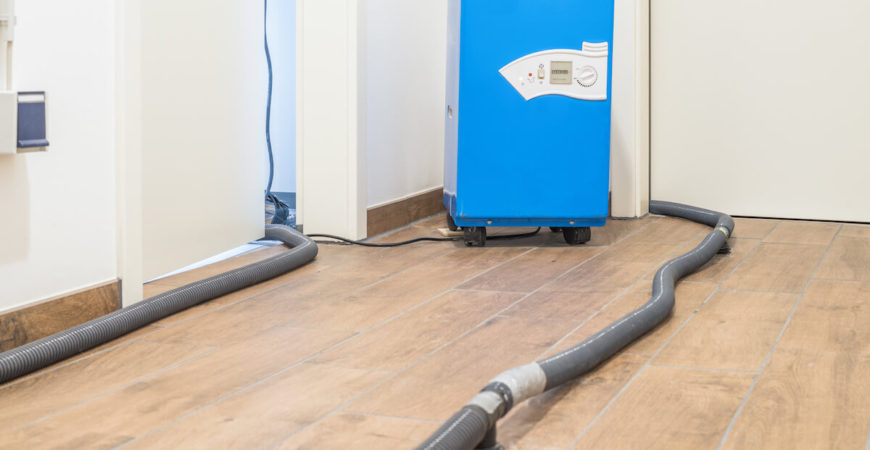How Water Damages Hardwood Floors
- Published By: District Floor Depot

If your home has hardwoods, your flooring expert likely mentioned water can do a number on them. You’ve probably been encouraged to wipe up spills or have flooding remediated as soon as possible to protect that investment, and you’ve likely been following that advice to avoid unnecessary damage. Do you know what water does to wood floors, though? Hardwoods are beautiful, but they aren’t exactly cheap. Understanding what liquid messes can do to them is important if you want to keep your flooring looking like-new for decades to come.
How Liquids Get Onto Hardwoods
This may seem like a no-brainer, but it’s important to consider how often water and hardwoods meet. Liquids are a bigger part of daily life than many homeowners realize. Here are just a few of the ways hardwood floors might come into contact with potentially harmful liquids:
- Snow or rain brought inside on shoes that just came from the elements
- Drinks, soups, or other consumables spilled from a glass, bowl, or can
- Pet bowl spillage, either directly around water dishes or slopped throughout the home after a pet takes a drink
- Damp feet walking from a shower or bath to reach a bedroom
- Cleaning liquid that is not applied correctly or wiped up
- Runoff from over-watered indoor plants
- Flooding from a bad storm or burst pipe
Except for a flood or burst pipe, many homeowners might not consider how detrimental water can be when it touches their hardwoods. Thinking through possible water-spillage culprits will go a long way toward protecting your flooring investments.
What Water Does to Hardwood Floors
Wood is a porous material, making it perfect for staining because it can easily absorb the intended color. That absorptive quality means wood also easily sucks up water, though, and that can create problems. When water is spilled on hardwoods, the wood expands as it takes in the liquid and contracts as it dries out. This can result in several very visible issues, including:
- Buckling as the edges of hardwood boards turn upward, disrupting the tongue-and-groove pattern or overall smoothness.
- Humps in the floor from cupping (individual planks that have become warped) or crowning (warping of several planks together).
- Staining in the shape of the spill, likely caused by the minerals in the water.
- Mold growth if water does not dry due to humidity or other factors.
- Rusting from wood nails in old floors.
The severity of the damage is often proportional to the amount of time the liquid remains in contact with a hardwood surface, making quick cleanup essential. If you notice damage to your hardwoods, call your flooring expert for an inspection and opinion on how to fix the problem. It could be as simple as sanding and restaining the wood, or as complex as replacing sections of your floor.
How to Protect Hardwoods from Water Damage
Polyurethane seal coats are designed to keep water from wrecking hardwoods, but even the thickest and toughest aren’t waterproof. They’ll hold liquids back long enough for you to grab a towel and mop up the mess, but they can’t withstand standing water for too long. Also, those seal coats can thin as time goes on. Regularly resealing your hardwoods will keep that barrier strong. Here are a few other tips for protecting your floors:
- Clean spills up as quickly as possible.
- Lay moisture-wicking and quick-drying rugs in high-traffic places like doorways and foyers.
- Add a plastic layer underneath welcome mats and hallway runners for extra protection against water soaking into rugs without time to dry. This is particularly important during winter and spring when there is a higher potential for snow or rain.
- Add a moisture-wicking rug and plastic layer under pets’ water dishes.
- Ensure all indoor plants have a catch plate under them to protect against overflow during watering.
- Winterize pipes to prevent breaking during cold winter months.
- Clean and wipe your floors down properly, and do so according to the directions on your hardwood-specific cleaning products.
Questions or Concerns?
Speak with your local flooring expert. District Floor Depot is ready and waiting to answer all your hardwood flooring questions, including how to repair or avoid water damage. Give us a call today.
